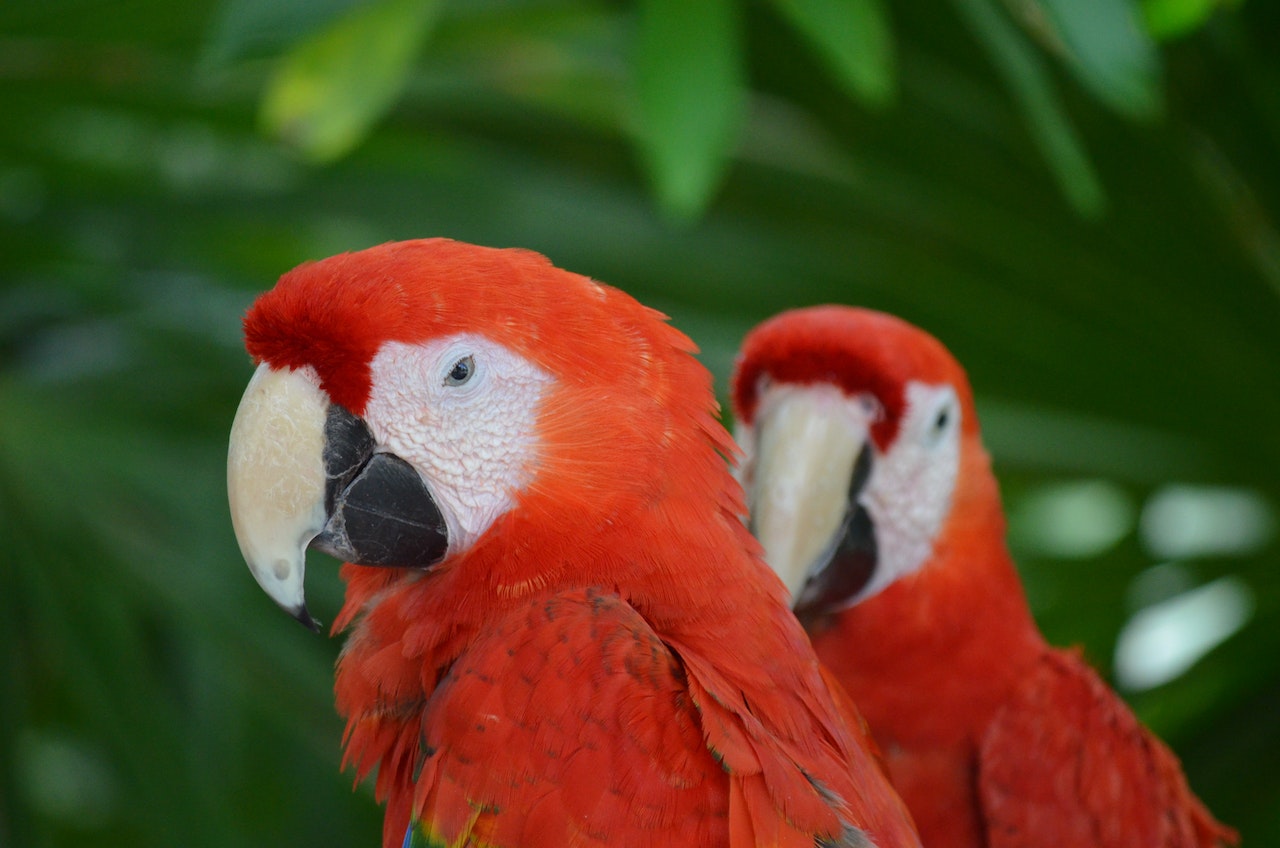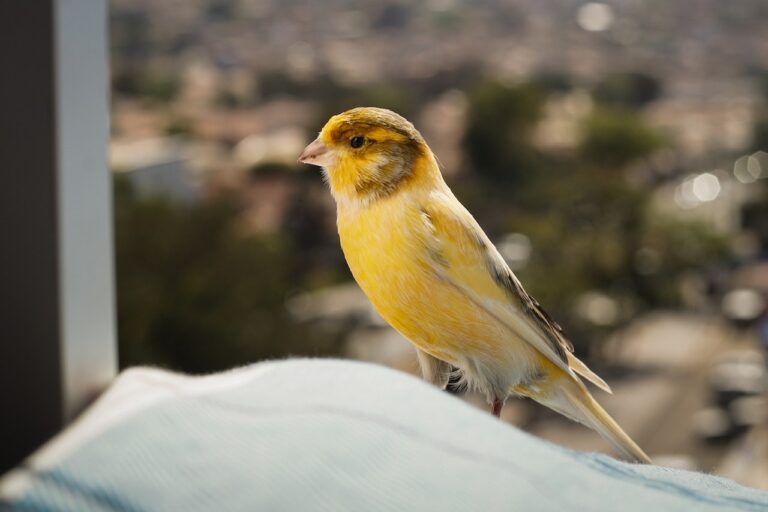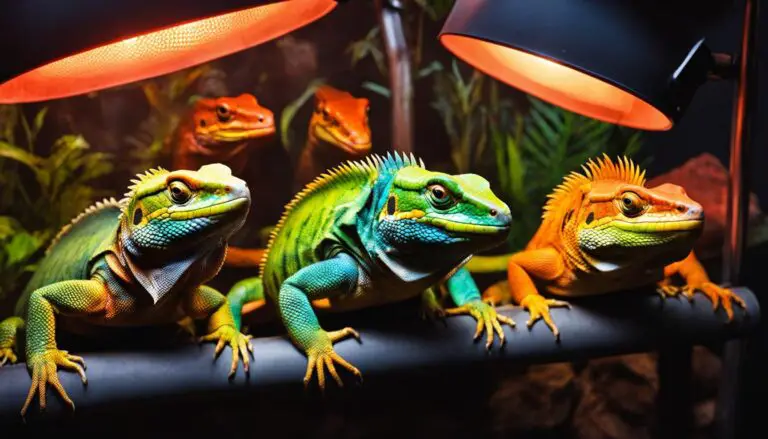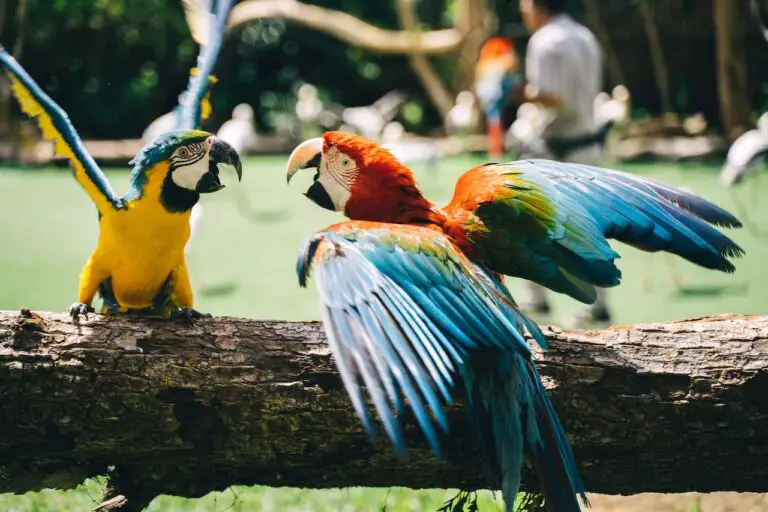Adopting Exotic Birds: Your Ultimate Guide to a Feathered Friend
Owning an exotic bird can be an incredibly rewarding experience, but it also comes with its unique set of challenges and responsibilities. If you’re considering bringing a feathered friend into your life, this comprehensive guide is here to help you navigate the exciting world of adopting exotic birds.
From choosing the right species to creating the perfect habitat, we’ll cover everything you need to know.
Key Takeaways:
- Research is Crucial: Take your time to research different exotic bird species, their characteristics, and care requirements before choosing the right one for you.
- Long-Term Commitment: Exotic birds can live for decades, so be prepared for a lifelong commitment to their care and companionship.
- Mimic Natural Habitat: Create a bird-friendly environment by selecting an appropriately sized cage, providing varied perches and toys, and placing the cage in a central location.
- Balanced Diet: Ensure your bird’s health with a balanced diet of fresh fruits and vegetables, high-quality pellets, and seeds as occasional treats.
- Daily Interaction: Dedicate daily time for bonding and socialization to build a strong and trusting relationship with your bird.
- Positive Reinforcement: Use positive reinforcement for training, provide mental stimulation with toys and puzzles, and consider teaching your bird tricks.
- Regular Vet Check-Ups: Schedule regular visits to an avian veterinarian for vaccinations, parasite control, and annual check-ups.
- Grooming and Maintenance: Be mindful of wing and nail trimming and, if necessary, consult a vet for beak maintenance.
- Interactions with Other Pets: Carefully supervise interactions between your exotic bird and other pets, and consider the nature of your pets when introducing them.
- Breeding Considerations: If you plan to breed exotic birds, ensure compatible pairs, suitable nesting areas, and be prepared for the responsibilities of chick care.
- Rescue Organizations: Consider adopting from rescue organizations dedicated to rehoming and rehabilitating exotic birds.
What Makes Exotic Birds So Special?
Exotic birds are known for their stunning colors, captivating personalities, and melodic voices.
They have a way of bringing joy and vibrancy to any home, making them exceptional companions. But before you rush into adopting one, let’s explore the essential factors to consider.
Choosing the Right Exotic Bird
1. Research Different Species
When it comes to choosing an exotic bird, research is your best friend. Take the time to explore the characteristics of various species, their lifespans, and their specific care requirements.
For example:
- Macaws: Known for their vibrant plumage, macaws are highly intelligent but can be quite noisy. They require large cages and plenty of mental stimulation. It’s important to note that macaws can be demanding in terms of time and attention.
- Cockatoos: Cockatoos are affectionate and known for their playful nature. However, they demand a lot of attention and can be prone to destructive behavior if left alone for extended periods. Their affectionate nature means they often form strong bonds with their owners.
- African Grey Parrots: These birds are famous for their exceptional talking abilities. They are highly intelligent and require mentally stimulating toys and regular interaction. African greys can be somewhat reserved but form deep connections with their caregivers.
2. Assess Your Commitment
Before adopting an exotic bird, consider the long-term commitment involved. These birds can live for several decades, so think about your future plans and whether you can provide a stable environment for your feathered friend.
Keep in mind:
- Lifespan: Depending on the species, your bird may live for 20, 50, or even 70 years. This is a significant commitment that extends well into the future. Be prepared for a lifelong companionship.
- Emotional Needs: Exotic birds are highly social creatures. They thrive on interaction and can become stressed or depressed if left alone for extended periods. Make sure you can commit time daily for socialization.
Creating a Bird-Friendly Environment
1. Habitat Selection
Once you’ve chosen a species, it’s crucial to create a habitat that mimics their natural environment.
Consider the following:
- Cage Size: Select a cage or aviary that allows your bird to spread its wings and fly within it. For larger species like macaws, the cage should be sizable to accommodate their wingspan. Ensure there’s enough space for perches and toys.
- Perches and Toys: Include a variety of perches and toys to keep your bird mentally engaged. Different textures, sizes, and materials will prevent boredom. Perches should vary in diameter to exercise their feet.
- Location: Place the cage in an area where your bird can be part of your daily life. Birds are social and thrive on interaction, so a central location in your home is ideal.
2. Nutrition and Diet
A well-balanced diet is the cornerstone of your bird’s health. Consult with an avian veterinarian or specialist to determine the best diet for your specific species.
However, here are some general guidelines:
- Fresh Fruits and Vegetables: Incorporate a variety of fresh fruits and vegetables into their daily meals. These provide essential vitamins and minerals. Avoid avocado, chocolate, caffeine, and alcohol, as they are toxic to birds.
- High-Quality Pellets: High-quality commercial pellets designed for your bird’s species are a convenient way to ensure they receive the necessary nutrients. Ensure they make up the bulk of the diet.
- Seeds as Treats: While seeds can be part of the diet, they should be considered treats due to their high fat content. Offer them in moderation.
Bonding and Socialization
1. Spend Quality Time
To build a strong bond with your exotic bird, dedicate time each day for interaction. Talk to your bird, sing songs, or engage in gentle play. Birds love routine, so try to establish a consistent daily schedule. They thrive on consistency and will come to expect and enjoy your interactions.
2. Training and Enrichment
Training is not only about teaching tricks; it’s also about establishing trust and boundaries. Here are some training and enrichment tips:
- Positive Reinforcement: Reward good behavior with treats or praise. Avoid punishment, as it can harm your bird’s trust in you. Use verbal cues and treats to encourage desired behaviors.
- Toys and Puzzles: Provide toys and puzzles that encourage mental stimulation. Birds love challenges and problem-solving activities. Rotate toys regularly to keep things fresh and exciting.
- Teaching Tricks: Beyond basic training, you can teach your bird fun and useful tricks. For example, teach them to step onto your hand or to retrieve small objects.
Health and Care
1. Regular Vet Check-Ups
Regular visits to an avian veterinarian are essential for monitoring your bird’s health. They can catch and treat illnesses early. Topics to discuss with your vet include:
- Vaccinations: Depending on your location and your bird’s species, vaccinations may be necessary. These can protect against common avian diseases.
- Parasite Control: Regularly check for external parasites like mites and internal parasites. Your vet can recommend preventive measures.
- Annual Check-Ups: Consider annual check-ups even if your bird seems healthy. Avian vets are trained to spot subtle signs of illness.
2. Grooming and Maintenance
While exotic birds often groom themselves, some may require additional care:
- Wing Clipping: Trimming your bird’s wings can prevent accidents and keep them safe. Consult a professional or your vet to learn how to do this correctly. If done improperly, it can lead to injury.
- Nail Trimming: Overgrown nails can cause discomfort. If you’re uncomfortable trimming them yourself, ask your vet for guidance. Be cautious not to cut into the quick.
- Beak Maintenance: In some cases, a bird’s beak may overgrow. Your vet can safely trim it if necessary.
3. Socialization and Interactions with Other Pets
If you have other pets, it’s crucial to consider their interactions with your exotic bird:
- Introducing Pets: When introducing your bird to other pets, ensure close supervision. Some dogs and cats may be curious but can pose a danger to your bird. Gradual introductions with barriers, such as cages or gates, can help them get accustomed to each other’s presence.
- Bird-Friendly Dogs: Some dog breeds, such as retrievers and spaniels, tend to have a gentle nature and may be more accepting of birds. However, always exercise caution and never leave them unsupervised.
- Bird-Friendly Cats: Cats may have a strong hunting instinct, making them potentially dangerous to birds. If you have a cat, keep them separated from your bird at all times, even if they seem friendly.
4. Breeding Considerations
If you intend to breed exotic birds, it’s essential to understand the complexities involved:
- Pairing Compatibility: Ensure that the pair you choose for breeding is compatible and healthy. Consult with avian experts or breeders for guidance on selecting suitable pairs.
- Nesting and Eggs: Provide a suitable nesting box or area for your birds to lay eggs and rear their chicks. Be prepared for the responsibilities of caring for the young birds, including feeding and proper socialization.
Conclusion
Adopting an exotic bird is a significant responsibility, but it can also be a source of immense joy.
By choosing the right species, creating a bird-friendly environment, bonding with your feathered friend, prioritizing their health, considering interactions with other pets, and understanding the intricacies of breeding, you can embark on a lifelong journey filled with companionship and unforgettable moments.
FAQs
How long do exotic birds typically live?
Exotic birds can live for several decades, depending on the species. Some may even reach 70 years or more with proper care.
Do exotic birds require special permits for ownership?
Depending on your location and the species you intend to adopt, you may need permits or licenses. Check with local authorities and wildlife agencies for specific regulations.
Can exotic birds be trained to talk or perform tricks?
Yes, many exotic birds can be trained to talk and perform tricks with patience and positive reinforcement. Training enhances their mental stimulation and strengthens your bond.
What should I do if my exotic bird shows signs of illness?
If you notice any unusual behavior or signs of illness in your bird, consult an avian veterinarian immediately. Early intervention is crucial for their well-being.
Are there rescue organizations for exotic birds in need of homes?
Yes, there are numerous rescue organizations dedicated to rehoming and rehabilitating exotic birds. Consider adopting from one of these organizations to give a bird in need a loving home.
Peter Stones is the founder of Exotic Pets Place, the leading online resource for exotic pet care information.
With over 10 years of hands-on exotic pet ownership experience, he is deeply passionate about sharing his expertise to help others properly care for their unusual pets.
When he's not writing extensively researched articles or connecting with fellow exotic pet enthusiasts worldwide, you can find Peter at home tending to his own beloved menagerie of exotic animals.







